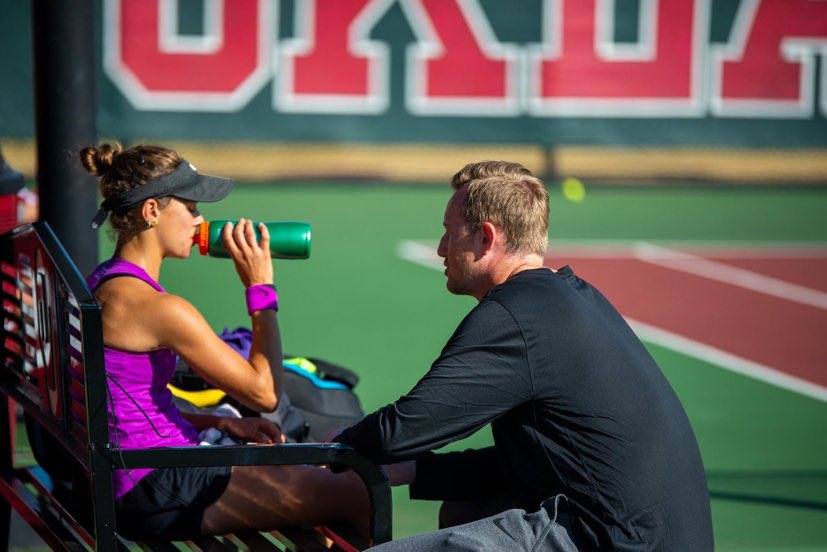For better or for worse, on court coaching can undoubtedly alter the trajectory of a tennis match. Here are some key things to remember in striving to steer your player toward success during a changeover:
Establish a Connection
In Women’s tennis, successful coaching during a changeover begins with connection. When you arrive at your player’s bench, its important you create an environment that allows them to feel comfortable and connected enough to open up and be vulnerable with you. Get down to their level, face them and make eye contact with them (if you are wearing sunglasses, take them off). Use your body language to establish a safe space for you player right away. By doing this you let your player know that you are locked in and ready to help them.
Listen & Emphasize
Walking onto the court you will have your own opinions on how the match is progressing and what your player needs to do to be successful. However, your thoughts and those of your player may not always be the same, so upon establishing a connection with them, you must give them a chance to let you know how they are feeling. Oftentimes, women players will immediately vent their frustrations and let you know how they are feeling. If they don’t, simply ask them. If you are still met with silence, that likely tells you a lot and you can take further cues as to how they are feeling from their body language. It is vitally important to be an active listener and emphasize with your player at this stage, trying to see things from their perspective.
Communicate with the Right Tone
As you actively listen to your player you’ll develop a sense of what tone they will respond best to when delivering your advice. For example, if they are anxious and panicking, a calming tone will probably be needed to steady the ship. If they on the opposite end of the spectrum and are flat, seemingly unengaged, or maybe even tanking, they may need a sterner tone of voice to jolt them back to life. You need to be adaptable with your approach, and the better you know your player, the easier it will be for you to assess the best tone in which to deliver your coaching.
Keep it Simple
Consider the information you deem most important in the moment and limit your on-court coaching to no more than two or three short and easy to understand focus points. These can be technical, tactical, mental- whatever you feel like your player will draw the most benefit from, but don’t reinvent the wheel here; use cue words, key points, and phrases that you know your player will grasp straight away. Over complicating your coaching will confuse your player, and in the ninety second changeover window you may only realistically be able to deliver thirty seconds worth of quality advice.
Ask if They Need Anything
Before leaving the court, ask your player if they need anything. Most of the time, especially at the professional level, they will already have everything they need but it is not uncommon at the junior or college levels however, for players to need additional food, water, energy products or even need to get a racket strung mid-match.
End with Energy
Finally, conclude your on-court coaching with energy, encouragement and continued connection. Give them a high five or fist bump while delivering a final word or two of encouragement to help your player find the right drive and focus coming out of the changeover. Your goal should be to have your player start the next game with: a continued or renewed sense of belief in themselves, a clear mind as to how to approach the match tactically, and, most importantly for women players, a sense of support that allows them to play freely and compete without fear of judgement or negative consequence.
Post-Match Review
After the match, it is always useful to review your on-court coaching with the player. Ask for their feedback and evaluate how you can make those exchanges even better in the future.
Remember, teamwork makes the dreamwork!
For some further inspiration, head over to YouTube and check out a couple of great examples of on court coaching in action between Coach Philippe Dehaes and Daria Kasatkina.

